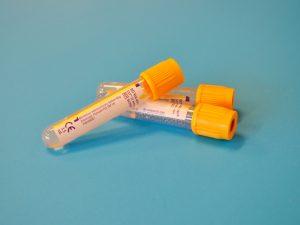Finding out you have a sexually transmitted disease (STD) can be scary. It can also affect your mental health. Here, we will talk about how STDs can impact your emotions and how to cope.
Mental Health and STDs
When you hear you have an STD, you might feel sad, scared, or even angry. This is normal. Many people with STDs feel this way. It can be hard to deal with these feelings, but there are ways to help yourself.
- Talk to Someone: Find someone you trust and tell them how you feel. This can be a friend, family member, or a counselor. Talking about your feelings can make them less overwhelming.
- Learn About Your STD: The more you know, the less scary it seems. Ask your doctor questions. Read reliable sources. Knowing how to manage your STD can help you feel more in control.
- Stay Healthy: Eat well, exercise, and get enough sleep. Taking care of your body can make your mind feel better too.
- Join a Support Group: There are groups where people with STDs can share their experiences. It can help to know you are not alone.
- Practice Mindfulness: Mindfulness means paying attention to the present moment. This can help reduce stress and anxiety.
Emotional Impact of STDs
The emotional impact of STDs can be big. Here are some feelings you might have:
- Shame: You might feel ashamed because of the stigma around STDs. Remember, having an STD does not make you a bad person.
- Fear: You might worry about what others will think or if you can have healthy relationships.
- Sadness: You might feel sad about your diagnosis. This is okay. It is important to allow yourself to feel these emotions.
Medications for Sexually Transmitted Disease
Some medications can help treat STDs. Here are five common ones:
- Acyclovir: This treats herpes. It can help reduce outbreaks.
- Azithromycin: This antibiotic treats chlamydia.
- Doxycycline: Another antibiotic that treats various STDs, including chlamydia and syphilis.
- Valacyclovir: This also treats herpes and works similarly to acyclovir.
- Metronidazole: This treats trichomoniasis.
These medications can help manage your STD, which can also help your mental health.
It is important to remember that you can still have a happy and healthy life with a sexually transmitted disease. Here are some final tips:
- Be Open with Partners: Tell your partners about your sexually transmitted disease. This is hard, but it is important. It shows respect and can help prevent spreading the sexually transmitted disease.
- Follow Treatment Plans: Take your medicine as your doctor tells you. This can help keep your STD under control.
- Focus on the Positive: Think about the good things in your life. This can help you stay hopeful.
Finding out you have an STD is hard, but it does not define you. You can take steps to cope with the emotional impact. With the right support and care, you can lead a happy and healthy life.
Conclusion
Discovering you have a sexually transmitted disease can be challenging for your mental health. It is normal to feel a range of emotions, from sadness to fear. By talking to trusted people, learning about your STD, staying healthy, and practicing mindfulness, you can manage these feelings. Medications like acyclovir and azithromycin can help treat your STD, making it easier to cope. Remember, having a sexually transmitted disease does not define you, and you can still live a fulfilling life. Always be open with partners and follow your treatment plan. Focus on the positives in your life and know that you are not alone in this journey.
FAQs
- What are common feelings after a sexually transmitted disease diagnosis? Common feelings include sadness, fear, shame, and anger. These emotions are normal and can be managed with support.
- How can I talk to someone about my STD? Choose a trusted person, like a friend, family member, or counselor. Be honest about your feelings and ask for their support.
- What medications are used to treat STDs? Common medications include acyclovir, azithromycin, doxycycline, valacyclovir, and metronidazole.
- How can I manage the emotional impact of my STD? Talk to someone, learn about your sexually transmitted disease, stay healthy, join a support group, and practice mindfulness.
- Can I still have a healthy relationship with an STD? Yes, you can. Be open with your partners and follow your treatment plan. Many people with STDs have healthy relationships.
Resources
- Mayo Clinic. (2021). Sexually transmitted diseases (STDs). Retrieved from https://www.mayoclinic.org/diseases-conditions/sexually-transmitted-diseases-stds/symptoms-causes/syc-20351240
- CDC. (2021). STDs & mental health. Retrieved from https://www.cdc.gov/std/life-stages-populations/stigma.htm
- WebMD. (2021). Coping with STDs. Retrieved from https://www.webmd.com/sexual-conditions/stds-coping



